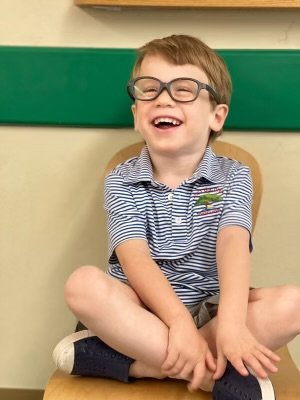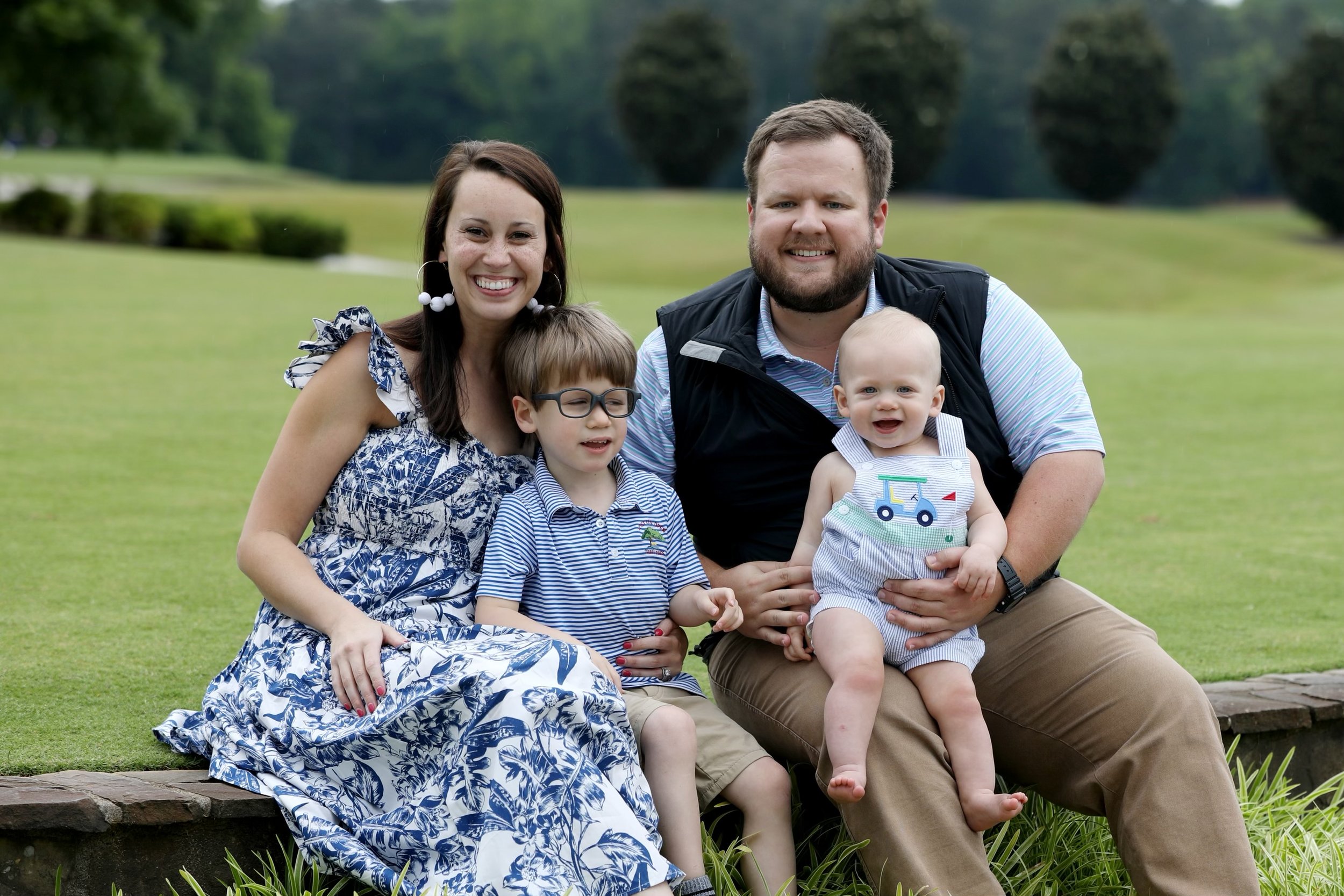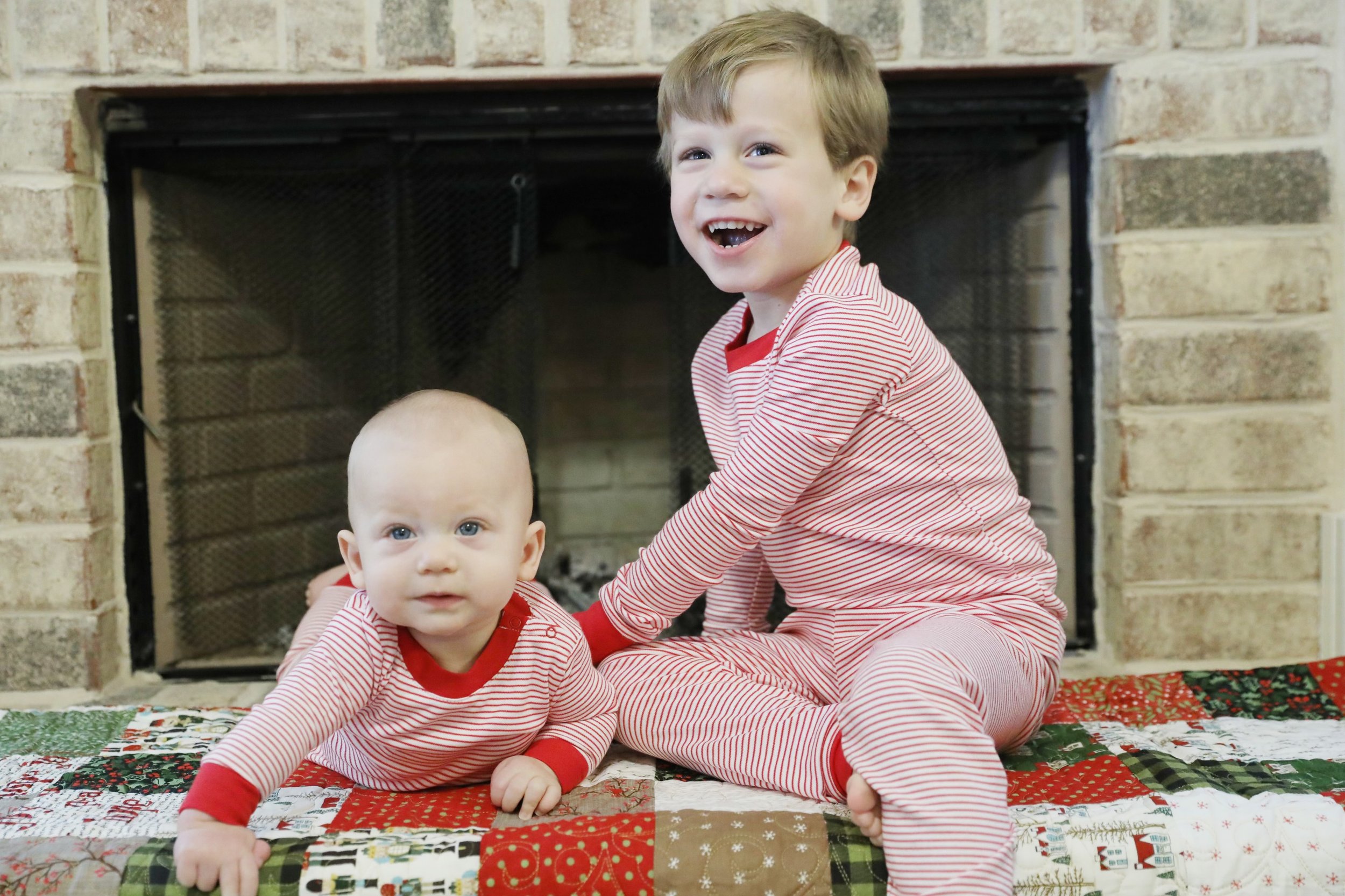The day after I delivered Whit, my second born, I remember laying in the hospital bed talking to my OBGYN about Finn, my first born. As parents, Cole and I were at a loss as to what to do. We loved Finn’s daycare, but knew it was not the appropriate place for him and his needs. At this point, he was still not talking. The years of blaming, or yet hoping, that it was COVID that caused his lack of verbal communication so late became more of a concern for us. He had behaviors that we felt weren’t normal for a 3.5 year old. We began exploring options to have him tested for autism, even though deep down we didn’t want a label on our child. You keep holding out hope that your child will talk one day. Those days turn into months, months turn into years until eventually you have a toddler who should be speaking in sentences, yet still can’t call you mama.
A couple of months later, I volunteered in Finn’s Sunday School classroom at church. I had never spent time with him in this type of setting. I remember Finn walking into the classroom and immediately swiping every toy off every table, upsetting other children. He also refused to sit on the rug with other children during story time, and he would’ve rather run around the room than complete a craft that morning. I was so embarrassed and I had no idea how to control my own child; I felt that everyone was looking at us, including the teachers and helpers in the room. It was at this moment that I knew we had to pursue testing. We then began the autism testing process in August 2022 at the Georgia Autism Center, the only testing facility that didn’t have a waitlist, and we finally received his diagnosis in January 2023.
While we were expecting the outcome of the testing, the diagnosis was a lot to process. We did, however, finally have what we needed to open the doors for autism specific therapies and services. I began exploring options for Finn’s ABA (applied behavior analysis) therapy that was recommended by Georgia Autism Center, as it was our only resource at the time. We had spotted Hopebridge passing by, an ABA therapy center in Athens (GA). We also knew that Finn could potentially attend the Early Learning Center in Clarke County. It was there that his IEP (individualized education program) was written, a process that took a couple of visits in itself. Wanting the best possible options for Finn, I then Googled ABA therapy places in Athens (GA) and came across BlueSprigs. These three places were a hurry up and wait process: paperwork, weeks out of scheduling and an endless amount of screening questionnaires. Each time I filled out a questionnaire, I felt like I was being slapped across the face – it was a constant reminder of each delay and “abnormal” behavior of Finn. I remained persistent in calling each place, weekly, even though I was promised call backs. I think I was in fact, the squeaky oil.
After visiting three different options for Finn to receive ABA services, the last place, BlueSprig, was the winner. I walked out of Finn’s evaluation at BlueSprig in tears, overwhelmed with emotions of relief. It was a small center, the staff was incredible, and Finn had the best time at his evaluation. Despite these feelings, Cole and I still felt so alone as we knew not one autistic parent, including the ones that brought their children to the center. Did BlueSprig have everything an ABA center should have? Do they really provide the services that they say they do? It seemed too good to be true to have found such a perfect place. I started to believe that our family wasn’t deserving of such a special place for him, and for the first few weeks, I kept waiting on a “gotcha.”
Being approved for a full 40 hour ABA therapy program, the first week was long, tiring, emotional and all the things for both Finn and Cole and me; however, we immediately started seeing results. Just because he was now receiving services didn’t mean that the work would stop – it was just beginning. It was during this time that we realized the time that would need to be carved out for weekly caregiver guidance sessions and reading and understanding pages of daily reports of Finn’s tasks and performance.
As Finn settled into BlueSprig, we began to feel more comfortable dropping him off at his 9 to 5 therapy. I began to feel a sense of calm, comfort and trust as I placed Finn into the care of RBTs (registered behavior technician) and BCBAs (board certified behavior analyst). While Finn was adjusting to this new normal, we were too. After five months, it’s now a routine. He loves attending each day, based on the smiles, laughter and big time energy that he displays at drop off and pick up. We have not only seen Finn’s progress in specific tasks, but we have seen his confidence increase in the way he carries himself, resulting in more of his personality appearing to the surface.
Without our family and community, I’m not sure that we would be standing in the midst of hope, relief and thankfulness. Our families have supported us throughout the entire process, helped us in times where we were at our breaking point, but most importantly, loved Finn unconditionally. My school administration has allowed me to teach part time to be more available for Finn. Our community consisting of close friends, numerous babysitters, Extra Special People (ESP), BlueSprigs, and Athens First UMC AGAPE have remained intentional, and most importantly, have met us where we were during every part of the process.
If you are going through a situation similar to mine, remember that you are not alone. The journey can feel isolating if you do not find your group of people to share your thoughts, cares and concerns. There are individuals out there who can be a resource to you, like my friend Kaeti Shurling. If it weren’t for her and her own experiences, I would not have felt as confident in the persistence of finding a diagnosis, applying for Katie Beckett and CHIPRA (Children’s Health Insurance Program Reauthorization Act of 2009), and being a true advocate for my child.
Over the past few years we have missed out on church, social events, football games, and that “first year of preschool” that so many families get to experience. We have constantly prepared ourselves for moments where Finny may “drop” to the floor out of frustration or “elope” from us in a parking lot or at the beach. As I look back over the first years of Finn’s life, the “ordinary” that we expected for our child looked different than others. While the perfect story for Finn is still being written, one that can be shared and used for others who may be going through similar situations, I can’t help but wonder if he can attend regular school next year, whether he will ever communicate with us without sign language or an iPad, or if he will ever tolerate a haircut for a long amount of time.
As my OBGYN told me after we received Finn’s diagnosis: “How cool is it that he can see the world in a way that we cannot?” I’ve clinged to this as we press forward in the opportunities Finn will have in the days to come as we remain hopeful and place our trust in the One who is the author of it all.
Looking to connect with Camille? Click here to email Carly and she will put you in touch.




